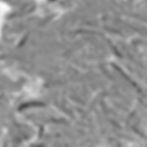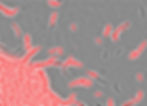
INTRODUCTION
Biology of
Myxococcus xanthus
Myxobacteria lead a social lifestyle that impacts cell growth, surface motility, and development, leading to spatial organization of cells and cooperative behaviours such as feeding on other bacteria and fruiting body formation.
Myxococcus xanthus is a Gram-negative soil bacterium and the model system for studying these behaviours; it displays characteristics once thought to be "eukaryotic" such as differentiated cell fates, directed transport, and metazoan-like extracellular matrix components.
M. xanthus research can thus directly inform studies on biofilm formation, cell-cycle progression, cell migration, and the origins of multicellularity.
An all-around cool bacterium to study, eh?


Spore-filled
M. xanthus fruiting bodies
Predation front
through an E. coli colony
Spreading
M. xanthus
swarm
Type IV pilus-dependent
M. xanthus group motility
Single-cell M. xanthus gliding motility

RESEARCH AREA 1
Substratum Interactions
The structure, function, and regulation of cell-surface adhesins are of interest in our lab as they are essential for interactions with the substratum that modulate various physiological states of M. xanthus at the single-cell and community level.


RESEARCH AREA 3
Outer-Membrane Dynamics
Long thought to be a simple, static physical barrier, the Gram-negative outer membrane (OM) has recently been revealed to be a dynamic component of the cell in which OM-derived vesicle and tube projections are generated that serve to carry cargo and connect cells. Using Myxococcus xanthus, we are examining OM modifications that contribute to OM extrusion.
RESEARCH AREA 2
Polysaccharide Production
Microbial polysaccharides are key mediators of cell-cell interactions, as well as cell-substratum interactions. We are using Myxococcus xanthus as a model bacterial system to study the biosynthesis mechanisms of important bacterial sugar polymers.

RESEARCH AREA 4
Cellular Recognition
Cells of Myxococcus xanthus are able to distinguish between compatible "kin" and incompatible "foreign" bacterial cells of the same, and different, species. We are elucidating the molecular nature of kin recognition as well as foreign cell predation.

RESEARCH AREA 5
Drug Discovery & Development (D3)
Drug discovery is essential for developing new treatments to address a wide range of diseases, including those lacking effective therapies. Using both Myxococcus xanthus and eukaryotic systems enables the identification of novel drug candidates and a deeper understanding of cellular processes, leading to more innovative and targeted treatments.


